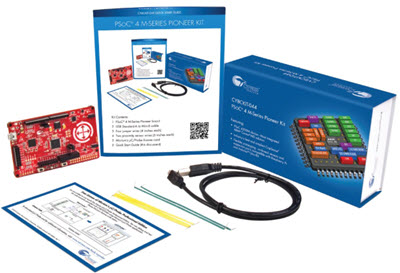
|
For novel ideas about building embedded systems (both hardware and firmware), join the 35,000 engineers who subscribe to The Embedded Muse, a free biweekly newsletter. The Muse has no hype and no vendor PR. Click here to subscribe.
|
Published 2/12/2007
The National Academy of Engineering thinks that by the year 2020 a BSEE will be nothing more than a "pre-engineering" degree, just a ticket needed to enter graduate school. Businesses will demand an MS or more. That will be just another barrier to entry into the field as college-bound kids will have to weigh all of that education - and all of that money - versus easier alternatives.
Leah Jamieson, IEEE's current president, isn't so sure. In http://www.eetimes.com/news/design/showArticle.jhtml?articleID=197002380 she recommends turning engineering education upside-down, and going to a more experiential approach, focusing on internships and "having students work on very realistic projects."
Right on, Ms. Jamieson. Sorta.
Engineering emerged from the ad hoc efforts of builders stretching back to antiquity, who relied on experience to form their creations. which all-to-often fell down. Church walls collapsed, so flying buttresses were invented, though medieval builders had little quantitative sense of how these reinforcements should be designed. Boilers exploded with tragic frequency till engineers harnessed the science of strength of materials to build provably-strong versions.
Early engineers trained as apprentices, working for years actually building things, or supervising the construction of things. They got their hands dirty. Indeed, Tesla was quoted as saying about prototypical engineer Edison: ".he had a veritable contempt for book learning and mathematical knowledge, trusting himself entirely to his inventor's instinct and practical American sense."
Today's EE student has a very different experience. Math, science and the theory of electronics dominates his or her education. A few lab classes sprinkled over a four or five year program just don't do much to develop that sense of feel one accumulates from long experience in building, testing, fixing and tuning physical things.
On the other hand, how many EEs do that sort of work anymore? What percentage of the profession drive a PC all day, doing simulations, FPGA design, SPICE modeling, and the like?
On the other, other hand, over the course of the last year employers have been pinging me incessantly about the trouble they're having finding "true" embedded systems engineers, people who understand software, sure, but who know about sensors, digitization issues, logic design and a smattering of analog electronics. Folks who can find problems and troubleshoot systems, not components of a product.
Those skills require hands-on experience.
Many colleges mandate a senior-level project class where students design and build something. I've taught that class at the University of Maryland. It's tremendous fun, and the students learn a lot. But that's a single course squeezed into an already compressed schedule. The students work hard. but necessarily devote few hours to it. Ms. Jamieson is right in suggesting that more is needed.
But today's EE curriculum already fills most of five years. It's easy to suggest additional classes, but short of creating a 6 or 7 year program, a sure deterrent to prospective students, how will colleges squeeze in more requirements?
Summer internships working in industry are a wonderful option, but it seems fewer companies offer them in today's hypercompetitive world where next quarter's profits reign supreme.
What do you think? Is experience working with real circuits important. or is it just a relict of a different age of engineering?


